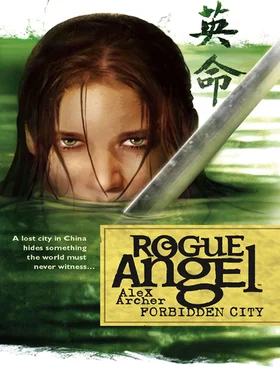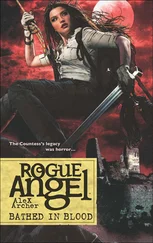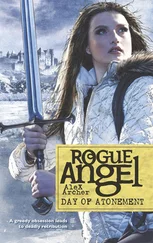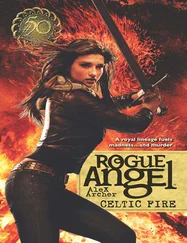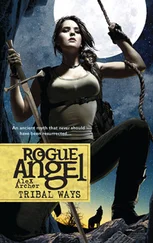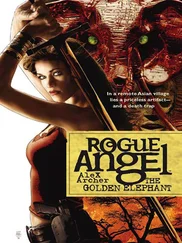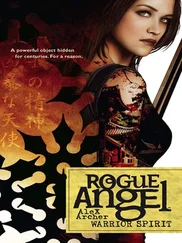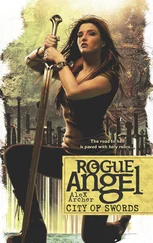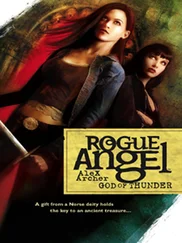Annja Creed smiled. “You have.” She’d only known the man for a handful of hours. They’d met briefly in nearby Georgetown, California, to arrange for the hiking trip. Before that they’d had conversations online for almost three weeks.
Genealogy wasn’t Annja’s field of study. When Huangfu Cao had first approached her about trying to find the final resting place of his ancestor, Annja had decided to turn the man down. As a result of the cable network show she co-hosted, she often received cards, letters, and e-mail requests to help strangers track down family legends. The death of Huangfu’s ancestor—though a brutal and interesting story—was too recent to warrant her attention or expertise.
At least, that was what she’d thought until Huangfu had sent descriptions of that ancestor’s prized possessions. One of them had caught her eye enough to draw her to California on a cold day in March to go traipsing down old roads that had once led to gold mining towns long gone bust.
Huangfu Cao looked like he was in his early thirties, but Annja didn’t bother to guess. She was wrong more often than not. He was five feet ten inches tall, matching Annja in height. But he was thin and angular, contrasting with her full-figured curves. His khaki pants held crisp creases. He wore a dark blue poly-fill jacket against the wind and dark sunglasses to offset the bright afternoon sunlight.
Dressed in a favorite pair of faded Levis tucked into calf-high hiking boots and a black long-sleeved knit shirt under a fleece-lined corduroy jacket, Annja was comfortable in spite of the March chill that hung in the afternoon air. She wore her chestnut-colored hair under a baby blue North Carolina Tar Heels cap she’d fallen in love with at one of the airports she’d passed through in her recent travels. Blue-tinted aviator sunglasses took the glare out of the day. Her aluminum frame backpack carried numerous supplies, as well as her notebook computer, but it was well-balanced and she hardly noticed the weight.
“I’m glad you were interested,” Huangfu said.
“Let’s just hope we get lucky,” Annja said as she scanned the forest before her, barely able to make out the old mining trail they followed.
A century and a half earlier, wagons had carved deep ruts in the land and left scars that would last generations.
“You’re in very good shape.” Huangfu adjusted his backpack. When he spoke, his breath was gray in the cool air for just a moment until the breeze tore it away.
Huangfu was in good shape, as well. Annja knew that because the pace she’d set had been an aggressive one. The man hadn’t complained or fallen behind. When she’d realized what she was doing and that she should have been going more slowly, she’d expected to find him out of breath and struggling to keep up. Instead, he’d been fine.
“I have to be in good shape in my profession.” Annja rethought that. “Actually, I don’t have to be, but I want to be. It comes in handy.” Especially when someone’s trying to kill me. That had occurred far too much lately. Ever since she’d found the last piece of Joan of Arc’s sword in France.
Before that, before Roux and Garin had entered her life, Annja had never once considered the possibility that she might ever have been connected to Joan of Arc. The sword, or maybe it was Annja herself these days, seemed to draw trouble like a magnet.
That was the downside, however. The upside was that whatever karma she presently lived under was taking her places she’d only dreamed of.
“I didn’t think television people actually needed to exercise. Only that they look so.” Huangfu smiled, showing that he meant no disrespect.
“Television isn’t exactly my profession.” Even though she’d been hosting spots on Chasing History’s Monsters for a while now, Annja still felt embarrassed. But doing the show allowed her to go more places than she would have been able to on her own as an archaeologist. Television shows tended to be better funded than the universities that would have hired her as a professor.
Likewise, the show had given Annja more international recognition than the hundreds of articles, monographs, and couple of books she’d written. She knew many of those publishers wouldn’t have considered her work if she hadn’t had the large underground fan base Chasing History’s Monsters had provided. And more of those published pieces had been for laymen than for professionals.
Unfortunately, the recognition was a double-edged sword. Many people tended to think of her as a television personality first and an archaeologist second. Annja never thought of herself that way. What she often gained in access she lost in credibility.
“It wasn’t the television personality I asked to help me—it was the archaeologist,” Huangfu said.
Annja smiled a little. She still wasn’t sure if Huangfu was flirting with her or simply being disarming. She was wrong about that more often than not, too. “Thank you,” she finally said.
They walked for a time. Annja took out the GPS device in her coat pocket and checked their location.
“Do you get many offers to do something like this?” Huangfu opened his canteen and took a sip of water.
“To go looking for someone’s ancestors?” Annja replaced the location device and uncapped her own canteen. “I do get a number of offers.”
“Do you answer them all?”
“No. I wouldn’t have time,” Annja replied.
Huangfu smiled. “Then what was it about my offer that interested you?”
“The family heirloom you’re looking for. That interested me.”
“Because it is a—” Huangfu paused, reflecting. English was not his native language, and he wasn’t as skilled as Annja had expected for someone who worked in international trade circles. He shrugged and shook his head. “I can’t remember what you called it.”
“I was fascinated because of the Scythian art,” she said as she started walking again.
“Yes. You said the Scythians were a nomadic people.”
“They were. In all probability, they were Iranian, but they were known by different names. The Assyrians knew them as the Ishkuzai. The Greek historian Herodotus of Halicarnassus described them as a tribe called the Kimmerioi, which was expelled by the Ishkuzai. The Kimmerioi were also known as Cimmerians, Gimirru in the histories left by the Assyrians.” Annja smiled. “Some people think Robert E. Howard borrowed the Cimmerian culture for his hero, Conan the Barbarian.”
Huangfu shook his head. “I don’t know those names. My ancestors were Chinese.” The words came sharply, edged with barely concealed rebuke.
Evidently Huangfu was, if not somewhat prejudicial, somewhat race conscious. Annja was aware that a number of Asian cultures looked down on each other. Regionalism divided civilization as surely as skin color, religion, and wealth.
“I didn’t mean to infer that they weren’t,” she said.
For just a moment Annja wished she’d passed on the offer to act as guide for Huangfu. She’d spoken the truth when she’d said she regularly got offers to investigate all sorts of esoterica people thought might end up as an episode of Chasing History’s Monsters.
If it hadn’t been for the Scythian art, she’d have passed on this. Looking for dead ancestors didn’t make her Top Ten List.
“The Scythian people traded with the Chinese beginning in the eighth century,” Annja went on. “Probably before that. But archaeologists and historians have been able to track the gold trade to that time period. All I was suggesting was that the design you found in your ancestor’s journals might be older than you think it is.”
Huangfu nodded, mollified to a degree. “Ah, I see. You think helping me find my ancestor might give you more information about the Scythian people.”
Читать дальше
